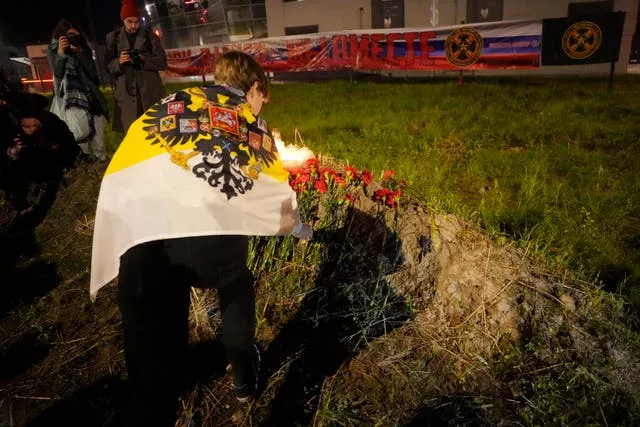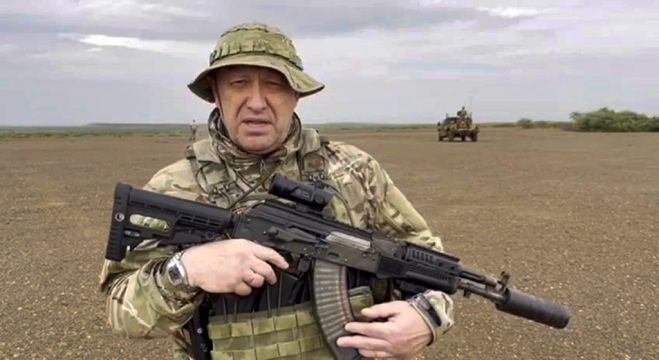Yevgeny Prigozhin, who was believed to have been killed in a plane crash north of Moscow on Wednesday, made his name as the mercenary boss who mounted an armed rebellion against Russian President Vladimir Putin in June.
Russia’s civil aviation agency said Mr Prigozhin, 62, and Dmitry Utkin, his right-hand man in the Wagner mercenary group, were among 10 people who died when the flight from Moscow to St Petersburg crashed.
His extraordinary journey took him from prisoner and hot dog vendor to elegant St. Petersburg restaurateur, then from propaganda wars to the battlefields in Ukraine.
His soldiers-for-hire were deployed to Africa to provide security for warlords and fought in Syria to shore up the regime of President Bashar Assad.

In May, they seized the Ukrainian city of Bakhmut in a rare victory for Russia, but Mr Prigozhin complained bitterly about the defence ministry’s conduct of the prolonged battle, saying it had denied ammunition to his forces.
As the war continued, he dropped his public reticence and began releasing social media videos in which he lauded his troops and increasingly denounced Russia’s defence establishment for alleged mismanagement of the war and denying weapons and ammunition to his forces.
He abruptly escalated his scathing criticism in June by calling for an armed uprising to oust Defense Minister Sergei Shoigu.
On June 23, his forces left Ukraine and seized the military headquarters in the southern Russian city of Rostov-on-Don. He ordered them to roll toward Moscow, saying it was “not a military coup, but a march of justice” to unseat Shoigu.
He called off the action less than 24 hours later in a deal struck by Belarus President Alexander Lukashenko.

In a televised address, Mr Putin had vowed to punish those behind the armed uprising led by his one-time protege. He called the rebellion a “betrayal” and “treason.”
But under the deal allowing Mr Prigozhin and his forces to go free, Kremlin spokesman Dmitry Peskov later said the president’s “highest goal” in the deal with the Wagner chief was “to avoid bloodshed and internal confrontation with unpredictable results”.
The owner of a high-end restaurant, Mr Prigozhin won Kremlin catering ventures which earned him the nickname of “Putin’s chef,” but he was mostly known only in the rarefied circles of the elite.
As the head of the Internet Research Agency, a “troll farm” that focused on interfering in the 2016 U.S. presidential election, he was barely visible.
But he barged into world view when mercenaries from his Wagner Group entered the war in Ukraine in 2022, becoming infamous both for their bloodthirsty fighting and their miserable treatment as cannon fodder in the eastern city of Bakhmut.

Both Mr Prigozhin and Mr Putin were born in Leningrad, now St Petersburg.
During the final years of the Soviet Union, Mr Prigozhin was in prison — a decade by his own admission — although he never said for what crimes.
Afterward, he owned a hot dog stand and then fancy restaurants that drew interest from Mr Putin who, in his first term, the Russian leader took then-French President Jacques Chirac to dine at one of them.
In 2014, he co-founded the Wagner Group, even though private military companies are technically illegal in Russia. It came to play a central role in Putin’s projection of Russian influence in global trouble spots, first in Africa and then in Syria.







